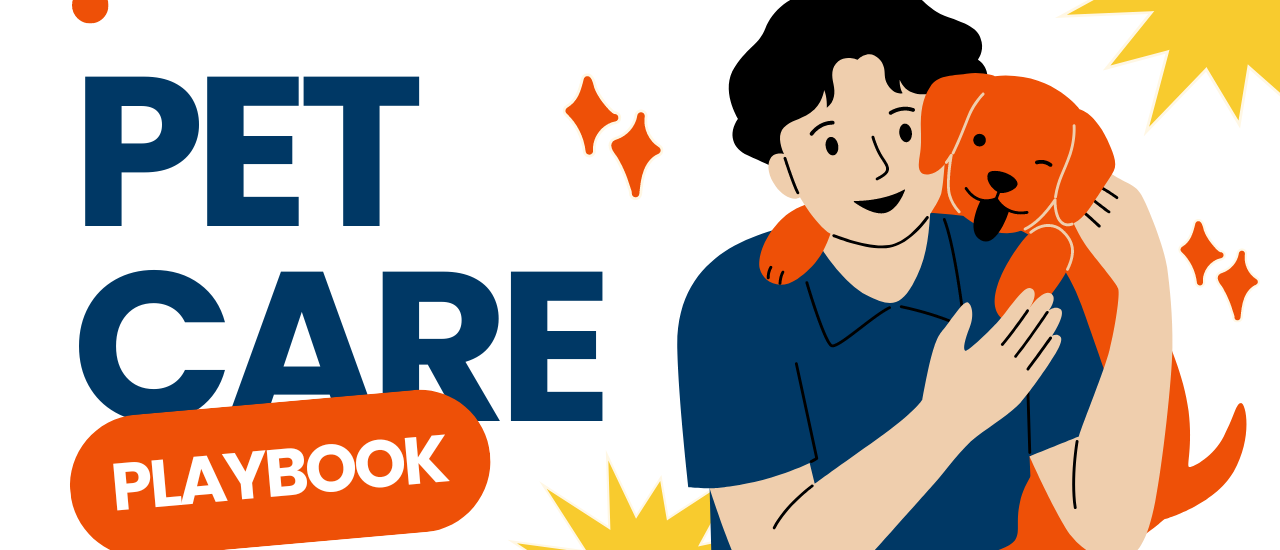Taking care of a pet is a rewarding experience, but it comes with a great deal of responsibility. Pets rely on us for food, shelter, medical care, and companionship. Whether you have a dog, cat, bird, fish, or a small animal, providing the right care ensures your pet stays healthy and enjoys a long, happy life. Here are some essential tips to help you offer the best care for your beloved pet.
1. Provide Proper Nutrition
Just like humans, pets need a balanced and nutritious diet to stay healthy. Feeding your pet the right food in the correct amount can significantly improve their health, prevent diseases, and increase their longevity.
Key Tips for Feeding Your Pet:
- Choose the Right Food: Different pets have different dietary needs. Dogs and cats need protein-rich diets, while birds may need seeds, fruits, and vegetables. Research the specific nutritional requirements of your pet and consult your veterinarian for advice on the best type of food.
- Portion Control: Overfeeding can lead to obesity and related health issues. Follow the feeding guidelines provided on pet food packaging or as recommended by your vet. Avoid giving excessive treats or table scraps, which can upset your pet’s digestive system.
- Provide Fresh Water: Always ensure your pet has access to clean, fresh water. Dehydration can be harmful to any animal, especially in hot weather or after exercise.
- Avoid Harmful Foods: Some human foods can be toxic to pets. For example, chocolate, grapes, onions, and certain artificial sweeteners are dangerous for dogs. Cats should avoid certain plants and foods like garlic. Always research which foods are safe for your pet.
2. Regular Exercise and Play
Pets, especially dogs and cats, need regular exercise to stay fit and healthy. Exercise helps prevent obesity, promotes cardiovascular health, and provides mental stimulation. Playtime also allows pets to burn off energy, reduce stress, and bond with their owners.
Tips for Exercising Your Pet:
- Daily Walks for Dogs: Dogs need regular walks to maintain physical health and mental well-being. Walks also provide an opportunity for socialization and exploration. The amount of exercise depends on your dog’s breed, age, and energy level.
- Interactive Play for Cats: Cats may be more independent than dogs, but they still need exercise. Engage your cat in playtime with toys such as laser pointers, feather wands, or puzzle feeders. This helps satisfy their hunting instincts and keeps them active.
- Enrichment for Small Pets: Smaller pets like rabbits, guinea pigs, and ferrets need playtime in a safe, enclosed area. Provide tunnels, chew toys, and climbing structures to keep them physically and mentally stimulated.
For pets that don’t need to be walked, such as birds or fish, providing toys, enrichment activities, and interesting environments can help keep them active and entertained.
3. Ensure Regular Veterinary Care
Regular visits to the veterinarian are a critical aspect of pet care. Routine check-ups help detect potential health issues early and ensure your pet is up to date on vaccinations and preventative care.
Veterinary Care Checklist:
- Annual Check-ups: Take your pet for a vet check-up at least once a year. During these visits, the vet will assess your pet’s overall health, check for any underlying issues, and provide necessary vaccinations.
- Vaccinations: Vaccines protect your pet from dangerous diseases such as rabies, distemper, and parvovirus (for dogs) or feline leukemia virus (for cats). Ensure your pet receives all required vaccinations on time.
- Parasite Prevention: Protect your pet from fleas, ticks, and worms by using preventative treatments recommended by your vet. These parasites can cause serious health problems if left untreated.
- Spaying and Neutering: Consider spaying or neutering your pet to prevent unwanted litters and reduce the risk of certain health issues, such as cancers or infections.
In addition to regular vet visits, pay attention to your pet’s health at home. Watch for changes in appetite, behavior, or physical appearance, and consult your vet if something seems off.
4. Grooming and Hygiene
Keeping your pet clean and well-groomed is not just about appearance—it’s an important part of their health and well-being. Regular grooming helps prevent infections, skin issues, and parasites, and it keeps your pet feeling comfortable.
Grooming Tips for Different Pets:
- Dogs: Regular brushing helps prevent matting, especially in long-haired breeds. Bathe your dog as needed, but not too frequently, as it can dry out their skin. Trim their nails regularly, and keep their ears clean to avoid infections.
- Cats: Cats groom themselves, but they may still need your help. Long-haired cats benefit from regular brushing to prevent tangles and hairballs. Check their nails and trim them when necessary.
- Small Pets: Rabbits, guinea pigs, and ferrets also need regular grooming. Brush their coats and check their nails. For pets like ferrets, occasional baths may be necessary.
- Birds and Fish: Birds enjoy baths or misting to keep their feathers clean and healthy. Fish tanks need regular cleaning to maintain water quality, which is essential for your fish’s health.
Regular grooming not only keeps your pet looking their best but also allows you to check for any signs of health issues, such as skin irritations, lumps, or parasites.
5. Provide Mental Stimulation
Mental stimulation is just as important as physical exercise for pets. Without proper engagement, pets can become bored, anxious, or even destructive. Keeping your pet mentally active helps prevent behavioral problems and ensures they lead a happy, fulfilling life.
Ideas for Mental Stimulation:
- Puzzle Toys: Toys that dispense treats or require problem-solving can keep your pet’s mind engaged. These are great for both dogs and cats.
- Training Sessions: Regular training sessions, whether teaching new tricks or reinforcing basic commands, help stimulate your pet’s brain. Positive reinforcement techniques work best, with treats, praise, or play as rewards.
- Exploration and New Experiences: Dogs, in particular, enjoy exploring new environments. Take them to different parks or walking routes to provide new smells and sights. Cats can enjoy exploration through window perches or safe outdoor enclosures.
For smaller pets like birds, changing the arrangement of their cage or introducing new toys can keep their environment interesting.
6. Socialization and Companionship
Pets are social creatures, and spending quality time with them is crucial for their emotional well-being. Regular interaction with you and other animals helps prevent loneliness and behavioral issues.
Socialization Tips:
- Quality Time: Spend time each day playing, petting, or simply being with your pet. This strengthens your bond and gives your pet the companionship they need.
- Introduce New Experiences: Gradually introduce your pet to new people, environments, and other animals to help them develop confidence and reduce anxiety in unfamiliar situations.
- Companion Pets: If possible, consider getting a companion for your pet if they seem lonely or crave constant interaction. However, always introduce new pets slowly and carefully to ensure they get along.
A well-socialized pet is more likely to be friendly, calm, and adaptable to different situations, making life with them more enjoyable for everyone.
Conclusion
Caring for a pet requires dedication, love, and attention to detail. By providing proper nutrition, exercise, grooming, mental stimulation, and regular veterinary care, you can ensure your pet stays happy and healthy for years to come. Remember, pets are not just animals—they are family members who depend on you for their well-being. With the right care and attention, you’ll create a fulfilling and joyful life for both you and your furry, feathered, or scaly companion.





